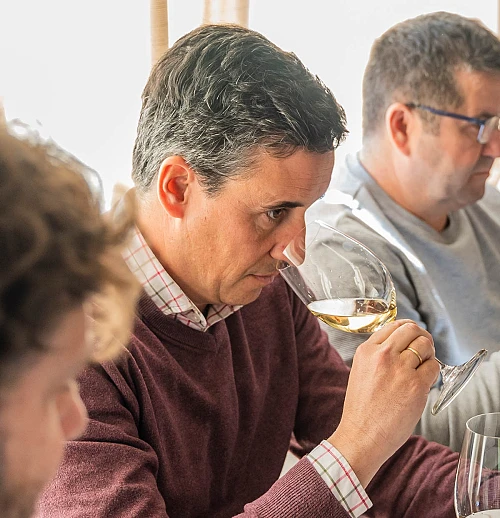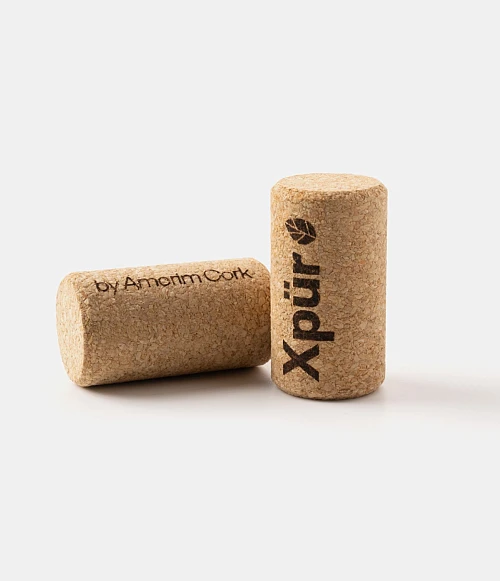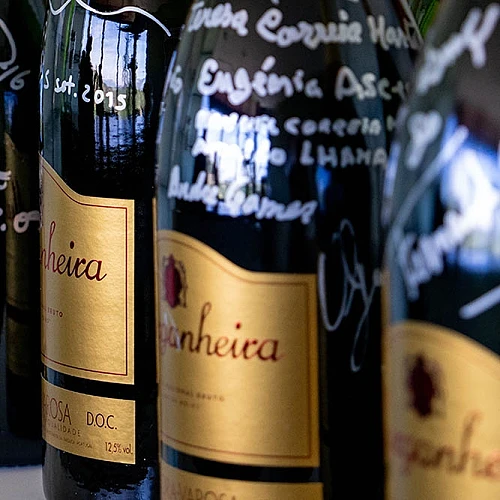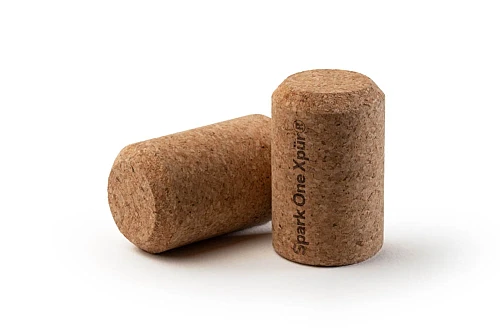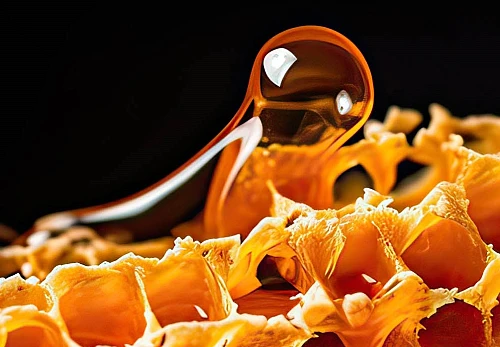- Media Center
- News
News Media Center

Are our brains hard-wired to prefer corks?
Recent neuromarketing studies have confirmed that cork stoppers make a key contribution to consumers’ sensorial enjoyment of wines.
The most recent study was conducted in 2022 by Milan’s “Behavior and Brain Lab” from the Neuromarketing Research Centre of the IULM University. It was promoted by Apcor – the Portuguese Cork Association and Assoimballaggi - Federlegno / Arredo.
The study revealed some startling facts, such as the fact that cork-sealed wines generate a 238% higher emotional activation for consumers compared to artificial closures.
40 participants were invited to taste the same wine, after being played one of two different audio recordings – either of a cork stopper being pulled from a bottle, or a screw cap being twisted open.
The research was conducted using neuroscientific equipment such as EEG helmets, special sensors and eye trackers. Emotional and cognitive reactions were analysed by detecting participants’ skin conductance and heart rate. The focus was on primordial, immediate and unconscious emotional and cognitive reactions, which are essential to our understanding of consumer behaviour.
The results revealed that while participants listened to the recordings, the sound of removing a cork stopper produced the strongest response, compared to a screw cap: cognitive engagement was 39% higher, and emotional activation was 64% higher.
During the smelling and tasting stages, the results were even more marked than in the listening phase.
When it came to smelling the aroma of the wine, the cognitive engagement of participants who had heard a cork being removed was 34% higher, while emotional activation was 59% higher.
This difference was even stronger during the tasting stage. Participants who believed they were drinking wine from a cork-sealed bottle
had 80% higher cognitive engagement and over 238% higher emotional activation.
The participants also attributed higher quality and stated their willingness to pay a higher price for the wine perceived to be sealed with a cork stopper. They revealed that on average they were willing to pay € 7.78 per bottle, i.e., € 1.21 more, compared to a bottle sealed with a screw cap (+18.5%).
These results mirror the findings from similar studies conducted in other countries, such as, the “Grand Cork Experiment - Neuroenological Tasting” conducted in 2017 in Soho, London designed by Oxford University’s Crossmodal Research laboratory, in which 140 participants were tested to see how the sounds, aromas and sensations associated with opening a wine bottle trigger our brains and influence our taste buds.
On average participants rated cork-sealed wines as having 15% better quality compared to wines sealed with screwcaps.
In the same year, British mathematician, Dr Eugenia Cheng, an Honorary Fellow of the University of Sheffield Mathematics and Statistics Department, decided to conduct an experiment to determine the exact frequency at which the sound of removing a sparkling wine stopper is the most appealing to the human ear.
She concluded that the secret lies in chilling the bottle and then applying minimal pressure to remove the cork with a pleasant ring rather than a loud thudding pop.
In an independent study, conducted in the USA in 2019, published in the International Journal of Hospitality Management (IJHM), 310 participants were asked to blind taste two wines, after visual clues that led them to believe that the wine had been sealed with either a natural cork stopper or a screwcap. The wines perceived to be sealed with a cork were ranked as over 15% better quality.
Neuromarketing uses state-of-the-art tools to measure participants’ physiological and neural signals in order to devise new advertising strategies and product development.
The results from these neuromarketing studies reflect the fact that consumers associate cork stoppers with better wines, and therefore the sound of opening a cork-sealed bottle of wine immediately triggers a stronger cognitive and emotional response.
These findings have been corroborated by market research surveys in the world’s leading wine markets, including the UK, US, France, Germany, Italy, Spain and China, that reveal that consumers consistently associate cork stoppers with higher quality wines.
